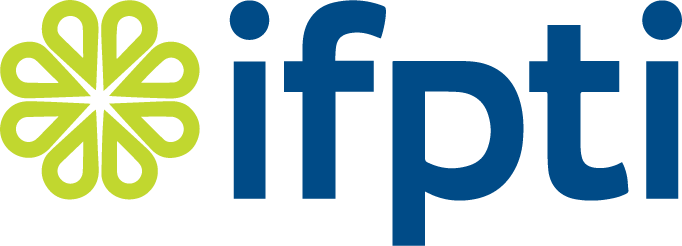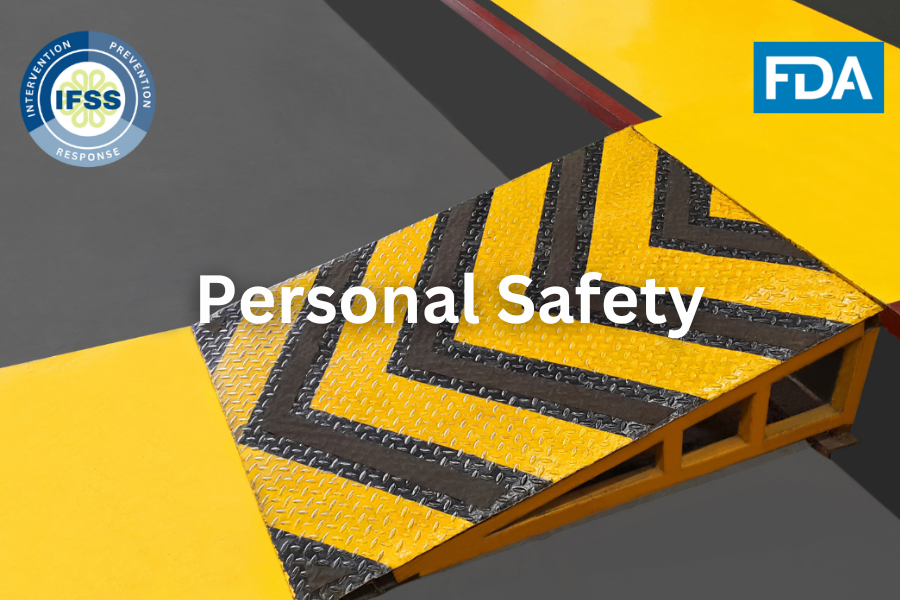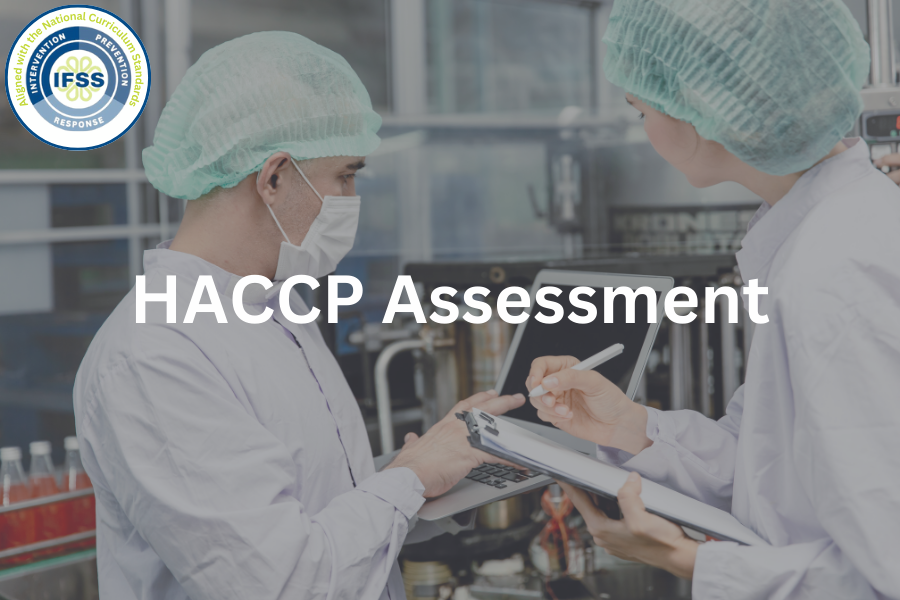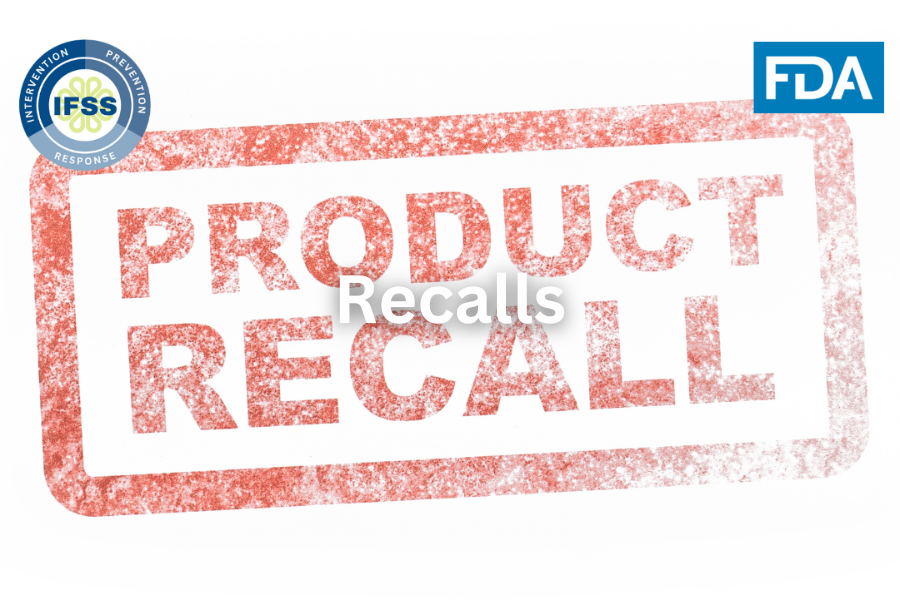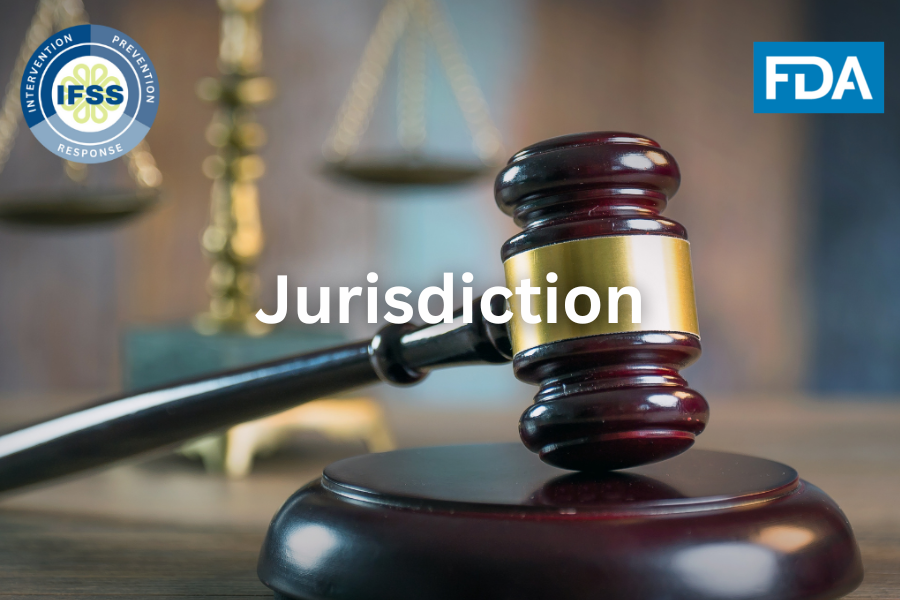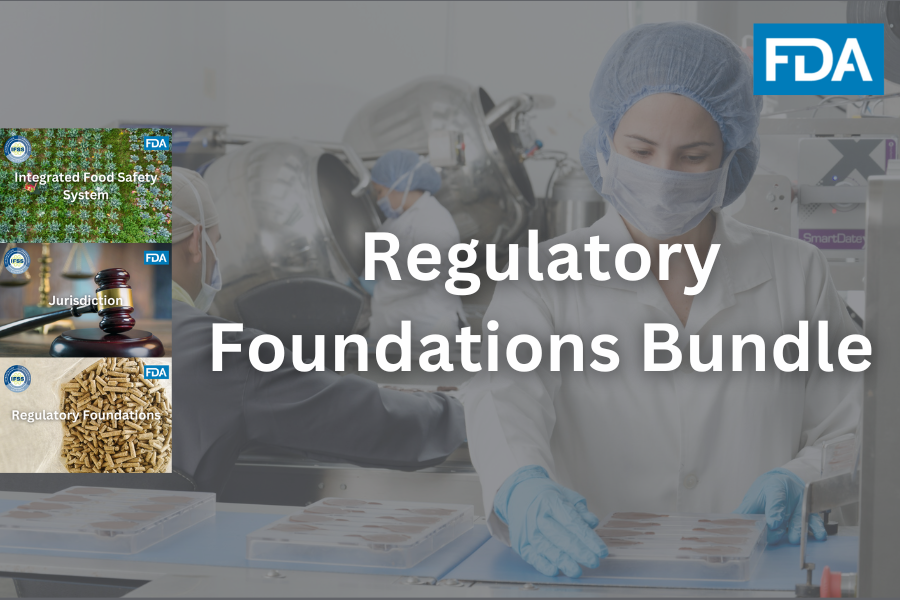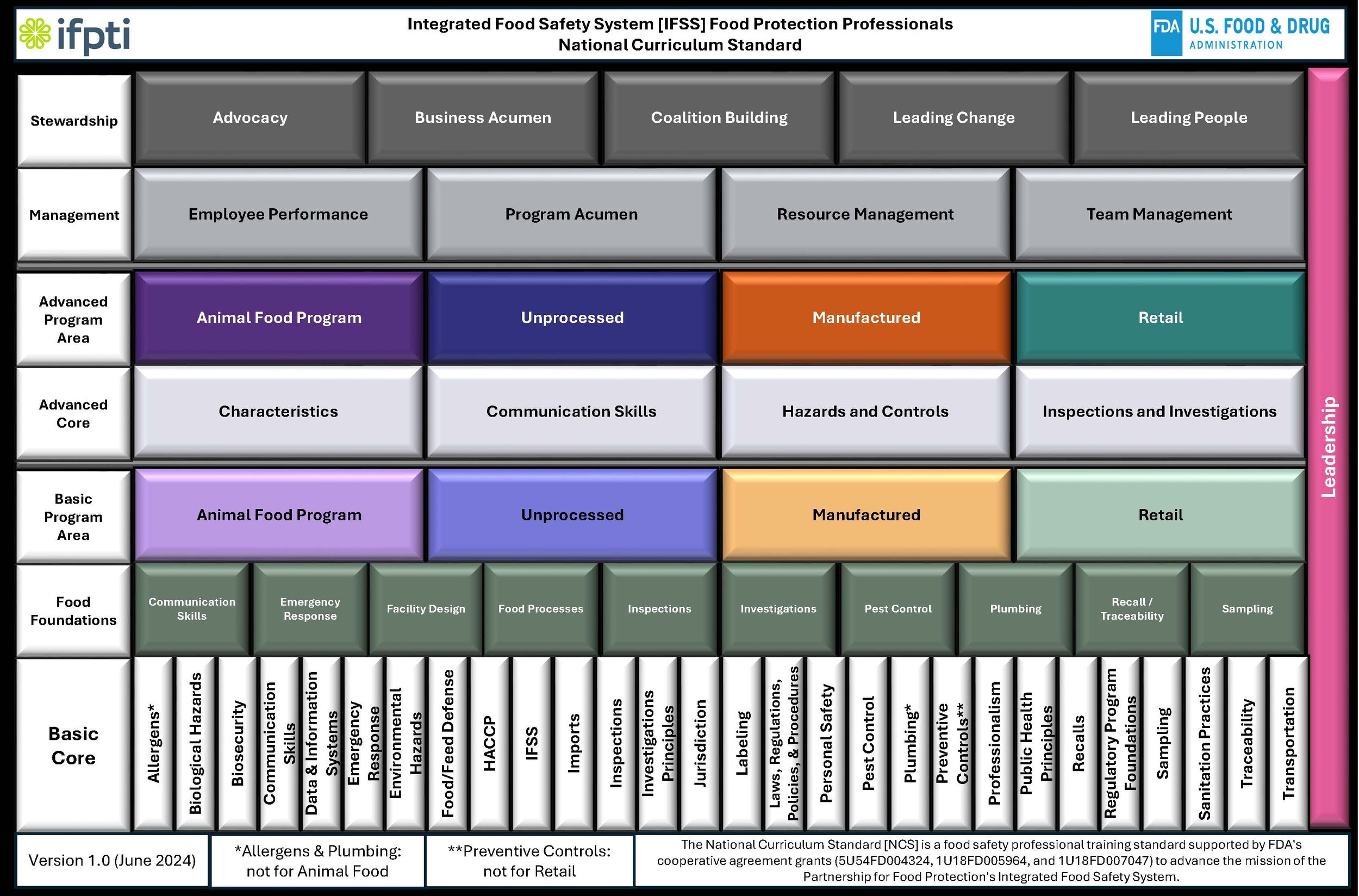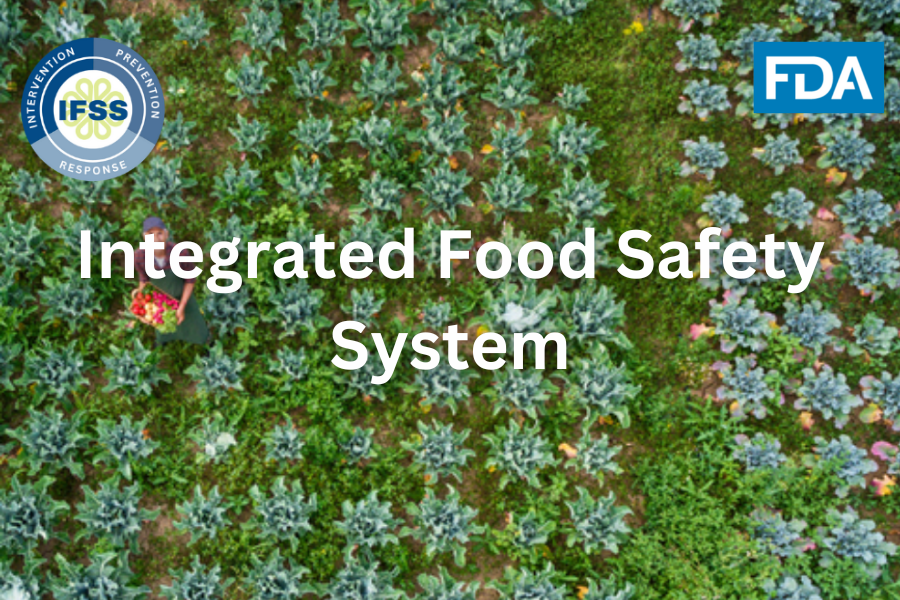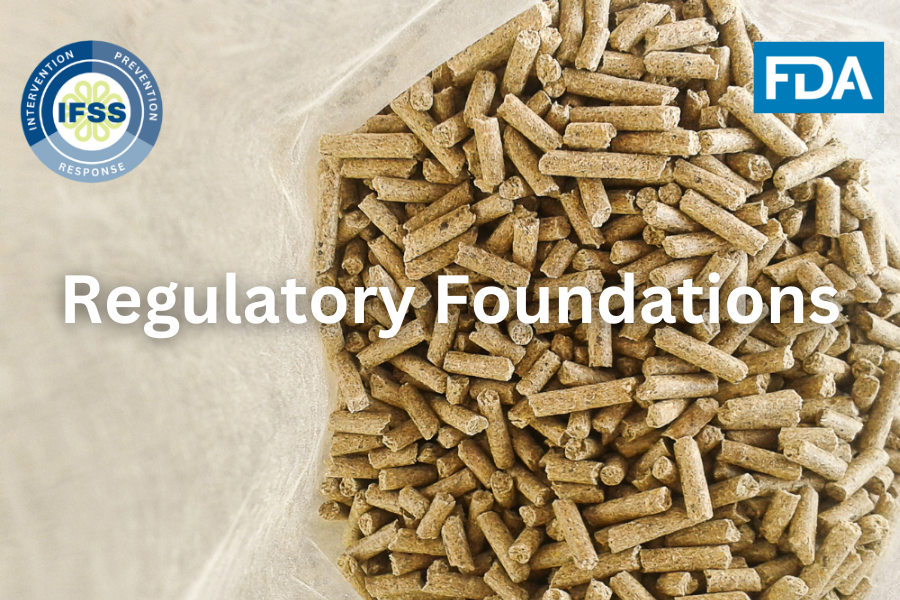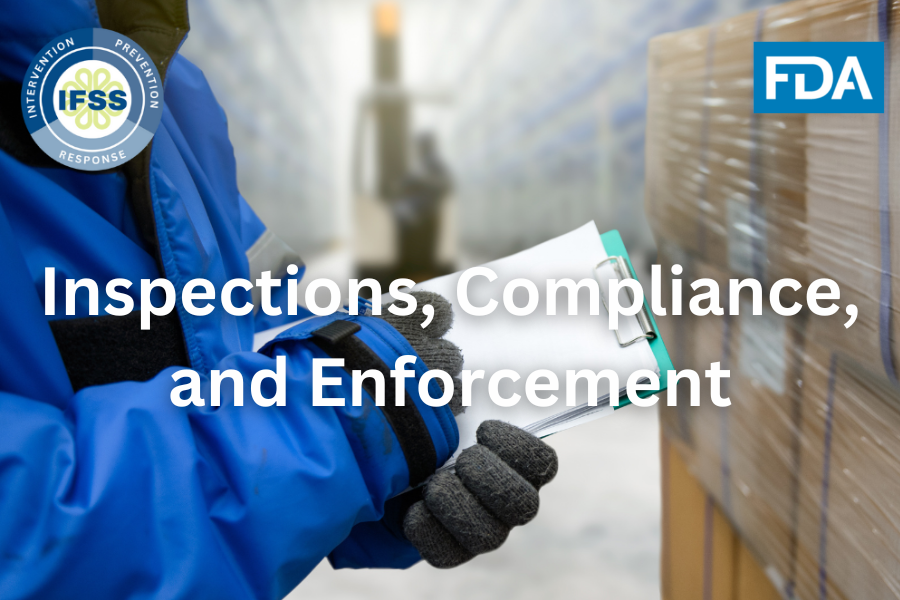 Image 1 of 2
Image 1 of 2

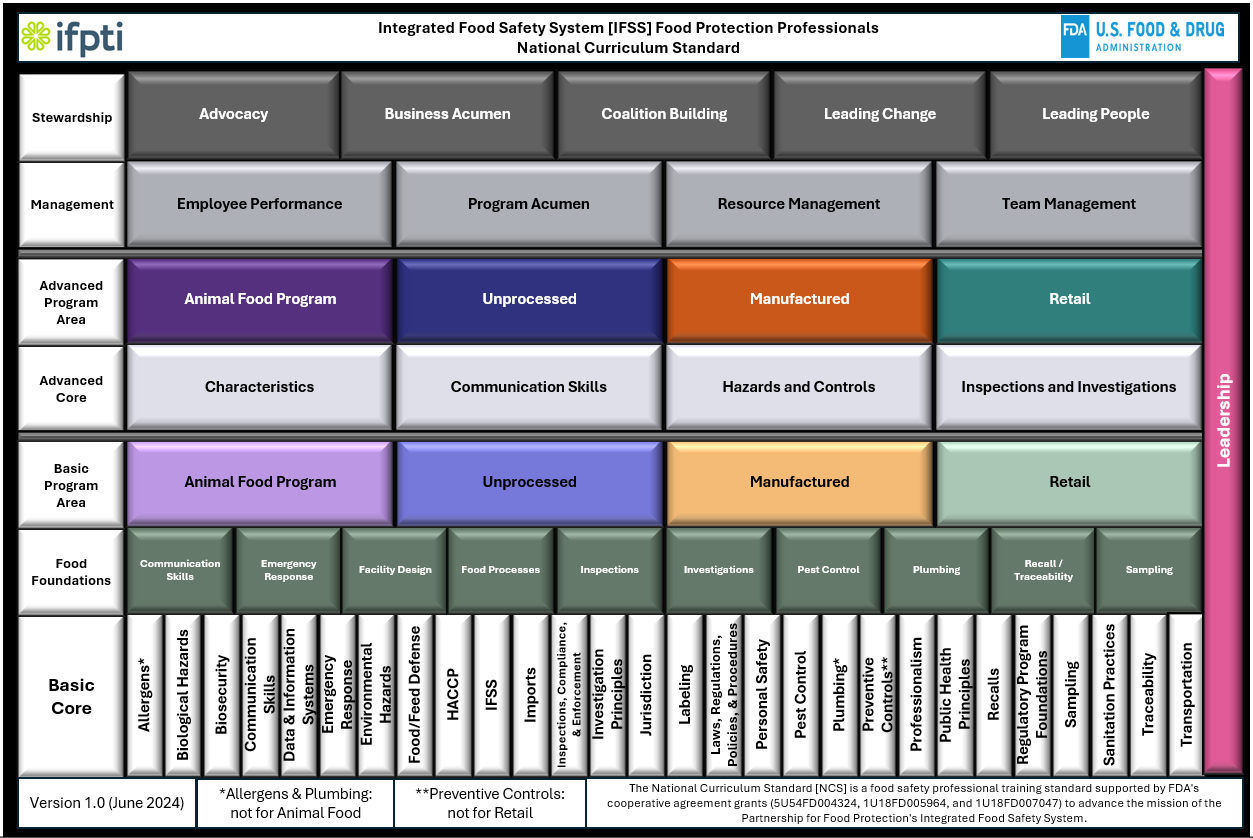 Image 2 of 2
Image 2 of 2



Inspections, Compliance, and Enforcement
The IFSS Basic Level Inspections, Compliance, and Enforcement course provides knowledge, skills, and abilities related to ensuring regulatory compliance through inspection and enforcement activities.
Goal: Participants will be able to recognize compliance activities as they relate to the safety of human and animal food programs.
Scope: Topics in this course include Foundations, Jurisdiction, Inspection Classifications, Inspection Tools, Inspection Techniques, Pre-Inspection, Inspection Process, Post-Inspection, and Enforcement Measures.
Course Objectives:
Foundations
Define relevant terminology,
Recognize the relationship between inspection, compliance, and enforcement,
Recognize laws, regulations, and codes pertaining to your job function,
Recognize procedures pertinent to your job function,
Recognize the scope of responsibilities for regulatory agencies, and
Define the purpose of education and outreach.
Jurisdiction
Recognize jurisdictional authority to conduct regulatory activities,
Differentiate the roles of regulatory agencies, and
Identify examples of agency collaboration.
Inspection Classifications
Recognize examples of different types of inspections.
Differentiate between a routine and non-routine inspection, and
Differentiate between team inspections and joint inspections.
Inspection Tools
Recognize how information technology is used during an inspection,
Identify reference materials,
Define the purpose of inspection forms,
Identify examples of inspection equipment,
Identify examples of outreach material, and
Recognize guidance documents related to inspection duties.
Inspection Techniques
Recognize examples of professional demeanor,
Recognize the importance of interviews,
Recognize interview techniques,
Recognize observation skills,
Recognize the importance of accuracy in documenting findings, and
Identify conflict management techniques.
Pre-Inspection
Identify pre-inspection activities,
Recognize the relevance of previous inspection reports,
Identify equipment checks necessary for the inspection, and
Recognize if resources are available.
Inspection Process
Recognize activities to initiate an inspection,
Identify activities performed during an inspection, and
Identify activities performed during an exit interview.
Post-Inspection
Identify examples of report requirements,
Identify report writing skills,
Recognize examples of compliance strategies, and
Identify report submission timeframes.
Enforcement Measures
Identify examples of available enforcement options,
Recognize re-inspection timeframes,
Recognize enforcement timeframes,
Recognize options to bring a facility back into compliance,
Recognize legal protections related to enforcement, and
Define progressive enforcement.
Duration:
Unit 1: Foundations – 30 minutes
Unit 2: Jurisdiction – 25 minutes
Unit 3: Inspection Classifications – 15 minutes
Unit 4: Inspection Tools – 30 minutes
Unit 5: Inspection Techniques – 30 minutes
Unit 6: Pre-Inspection – 15 minutes
Unit 7: Inspection Process – 25 minutes
Unit 8: Post-Inspection – 20 minutes
Unit 9: Enforcement Measures – 30 minutes
The IFSS Basic Level Inspections, Compliance, and Enforcement course provides knowledge, skills, and abilities related to ensuring regulatory compliance through inspection and enforcement activities.
Goal: Participants will be able to recognize compliance activities as they relate to the safety of human and animal food programs.
Scope: Topics in this course include Foundations, Jurisdiction, Inspection Classifications, Inspection Tools, Inspection Techniques, Pre-Inspection, Inspection Process, Post-Inspection, and Enforcement Measures.
Course Objectives:
Foundations
Define relevant terminology,
Recognize the relationship between inspection, compliance, and enforcement,
Recognize laws, regulations, and codes pertaining to your job function,
Recognize procedures pertinent to your job function,
Recognize the scope of responsibilities for regulatory agencies, and
Define the purpose of education and outreach.
Jurisdiction
Recognize jurisdictional authority to conduct regulatory activities,
Differentiate the roles of regulatory agencies, and
Identify examples of agency collaboration.
Inspection Classifications
Recognize examples of different types of inspections.
Differentiate between a routine and non-routine inspection, and
Differentiate between team inspections and joint inspections.
Inspection Tools
Recognize how information technology is used during an inspection,
Identify reference materials,
Define the purpose of inspection forms,
Identify examples of inspection equipment,
Identify examples of outreach material, and
Recognize guidance documents related to inspection duties.
Inspection Techniques
Recognize examples of professional demeanor,
Recognize the importance of interviews,
Recognize interview techniques,
Recognize observation skills,
Recognize the importance of accuracy in documenting findings, and
Identify conflict management techniques.
Pre-Inspection
Identify pre-inspection activities,
Recognize the relevance of previous inspection reports,
Identify equipment checks necessary for the inspection, and
Recognize if resources are available.
Inspection Process
Recognize activities to initiate an inspection,
Identify activities performed during an inspection, and
Identify activities performed during an exit interview.
Post-Inspection
Identify examples of report requirements,
Identify report writing skills,
Recognize examples of compliance strategies, and
Identify report submission timeframes.
Enforcement Measures
Identify examples of available enforcement options,
Recognize re-inspection timeframes,
Recognize enforcement timeframes,
Recognize options to bring a facility back into compliance,
Recognize legal protections related to enforcement, and
Define progressive enforcement.
Duration:
Unit 1: Foundations – 30 minutes
Unit 2: Jurisdiction – 25 minutes
Unit 3: Inspection Classifications – 15 minutes
Unit 4: Inspection Tools – 30 minutes
Unit 5: Inspection Techniques – 30 minutes
Unit 6: Pre-Inspection – 15 minutes
Unit 7: Inspection Process – 25 minutes
Unit 8: Post-Inspection – 20 minutes
Unit 9: Enforcement Measures – 30 minutes
The IFSS Basic Level Inspections, Compliance, and Enforcement course provides knowledge, skills, and abilities related to ensuring regulatory compliance through inspection and enforcement activities.
Goal: Participants will be able to recognize compliance activities as they relate to the safety of human and animal food programs.
Scope: Topics in this course include Foundations, Jurisdiction, Inspection Classifications, Inspection Tools, Inspection Techniques, Pre-Inspection, Inspection Process, Post-Inspection, and Enforcement Measures.
Course Objectives:
Foundations
Define relevant terminology,
Recognize the relationship between inspection, compliance, and enforcement,
Recognize laws, regulations, and codes pertaining to your job function,
Recognize procedures pertinent to your job function,
Recognize the scope of responsibilities for regulatory agencies, and
Define the purpose of education and outreach.
Jurisdiction
Recognize jurisdictional authority to conduct regulatory activities,
Differentiate the roles of regulatory agencies, and
Identify examples of agency collaboration.
Inspection Classifications
Recognize examples of different types of inspections.
Differentiate between a routine and non-routine inspection, and
Differentiate between team inspections and joint inspections.
Inspection Tools
Recognize how information technology is used during an inspection,
Identify reference materials,
Define the purpose of inspection forms,
Identify examples of inspection equipment,
Identify examples of outreach material, and
Recognize guidance documents related to inspection duties.
Inspection Techniques
Recognize examples of professional demeanor,
Recognize the importance of interviews,
Recognize interview techniques,
Recognize observation skills,
Recognize the importance of accuracy in documenting findings, and
Identify conflict management techniques.
Pre-Inspection
Identify pre-inspection activities,
Recognize the relevance of previous inspection reports,
Identify equipment checks necessary for the inspection, and
Recognize if resources are available.
Inspection Process
Recognize activities to initiate an inspection,
Identify activities performed during an inspection, and
Identify activities performed during an exit interview.
Post-Inspection
Identify examples of report requirements,
Identify report writing skills,
Recognize examples of compliance strategies, and
Identify report submission timeframes.
Enforcement Measures
Identify examples of available enforcement options,
Recognize re-inspection timeframes,
Recognize enforcement timeframes,
Recognize options to bring a facility back into compliance,
Recognize legal protections related to enforcement, and
Define progressive enforcement.
Duration:
Unit 1: Foundations – 30 minutes
Unit 2: Jurisdiction – 25 minutes
Unit 3: Inspection Classifications – 15 minutes
Unit 4: Inspection Tools – 30 minutes
Unit 5: Inspection Techniques – 30 minutes
Unit 6: Pre-Inspection – 15 minutes
Unit 7: Inspection Process – 25 minutes
Unit 8: Post-Inspection – 20 minutes
Unit 9: Enforcement Measures – 30 minutes
